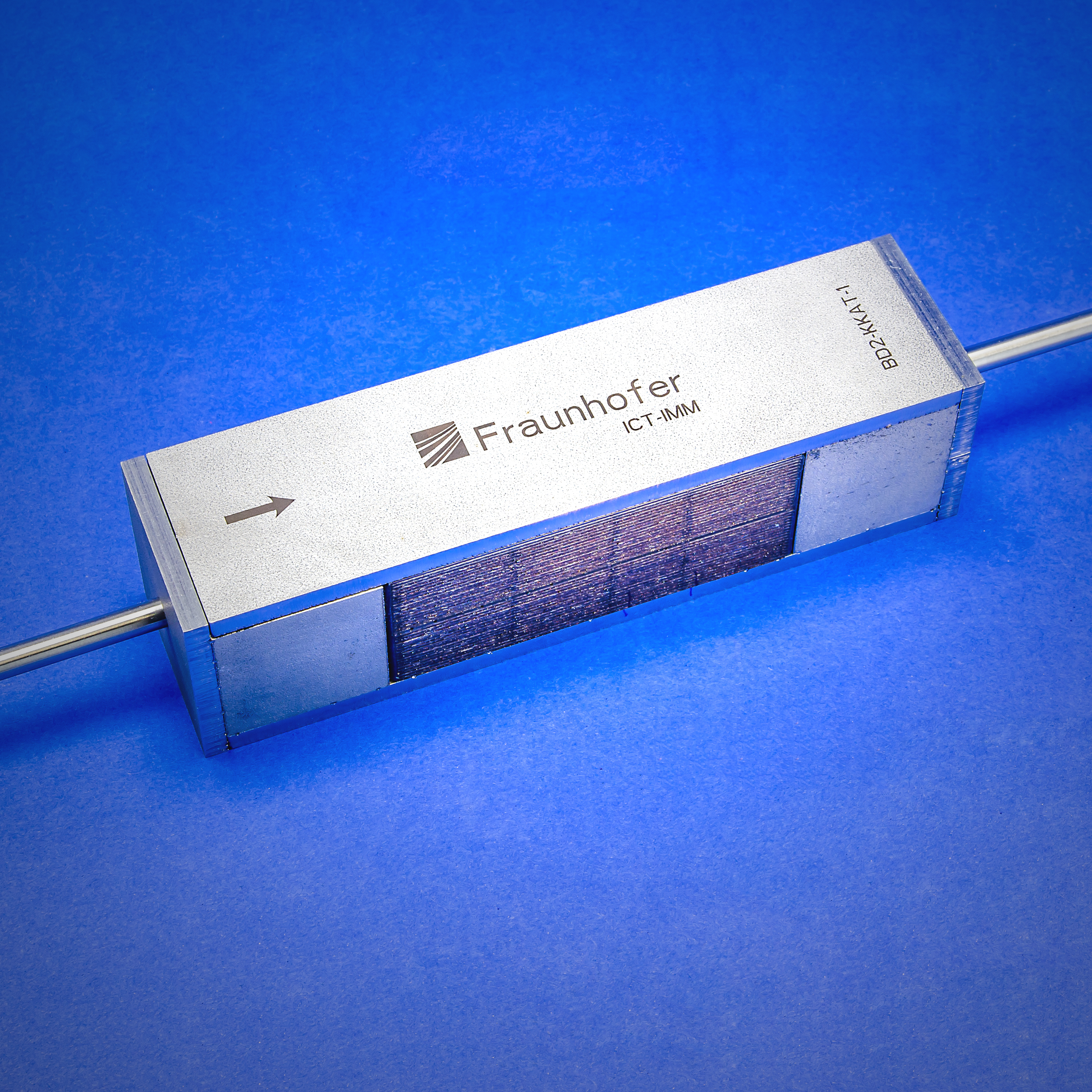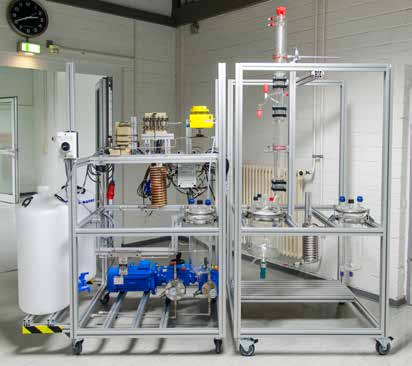Manufacture of Biodiesel in a Supercritical Process – New Methods Promise Increase in Efficiency, Environmental Benefits and Cost Reduction – To be Demonstrated on Laboratory Scale
In this project, which is financed by the Energy and Climate Fund of the Federal government via the Agency of Renewable Resources (FNR), the usual transesterification of plant oils that takes place during the manufacture of biodiesel is carried out using supercritical methanol. Instead of the conventional fluid reaction accelerator, Fraunhofer ICT-IMM uses innovative, heterogeneous catalysts that are applied as a coating in microscale reactors.
Supercritical – this is the thermodynamic condition which materials reach at a certain constellation of temperature and pressure, and at which the properties of fluid and gas merge without phase separation.
A small laboratory installation is to be tested that manufactures biodiesel from different plant oils at considerably higher reaction speeds. A result of the supercritical process management is that reaction time is shortened and several process steps such as recovery of the catalyst are eliminated. By means of the concept presented here, the transesterification rates are increased, the size of the reactor and water consumption are decreased and, simultaneously, the sensitivity of the process to traces of water in the raw material decreases as well.
Also the reduced need for methanol, the greater purity of the by-product glycerin and the high long-term stability of the catalyst are further advantages. The process does require greater pressure and higher temperatures but, due to the process optimization, the overall energy consumption is still lower than with conventional methods. The supercritical process offers great economic potential.
 Fraunhofer Group for Materials and Components - Materials
Fraunhofer Group for Materials and Components - Materials
